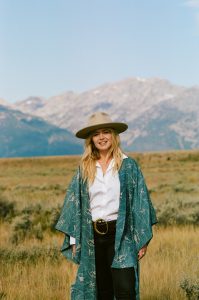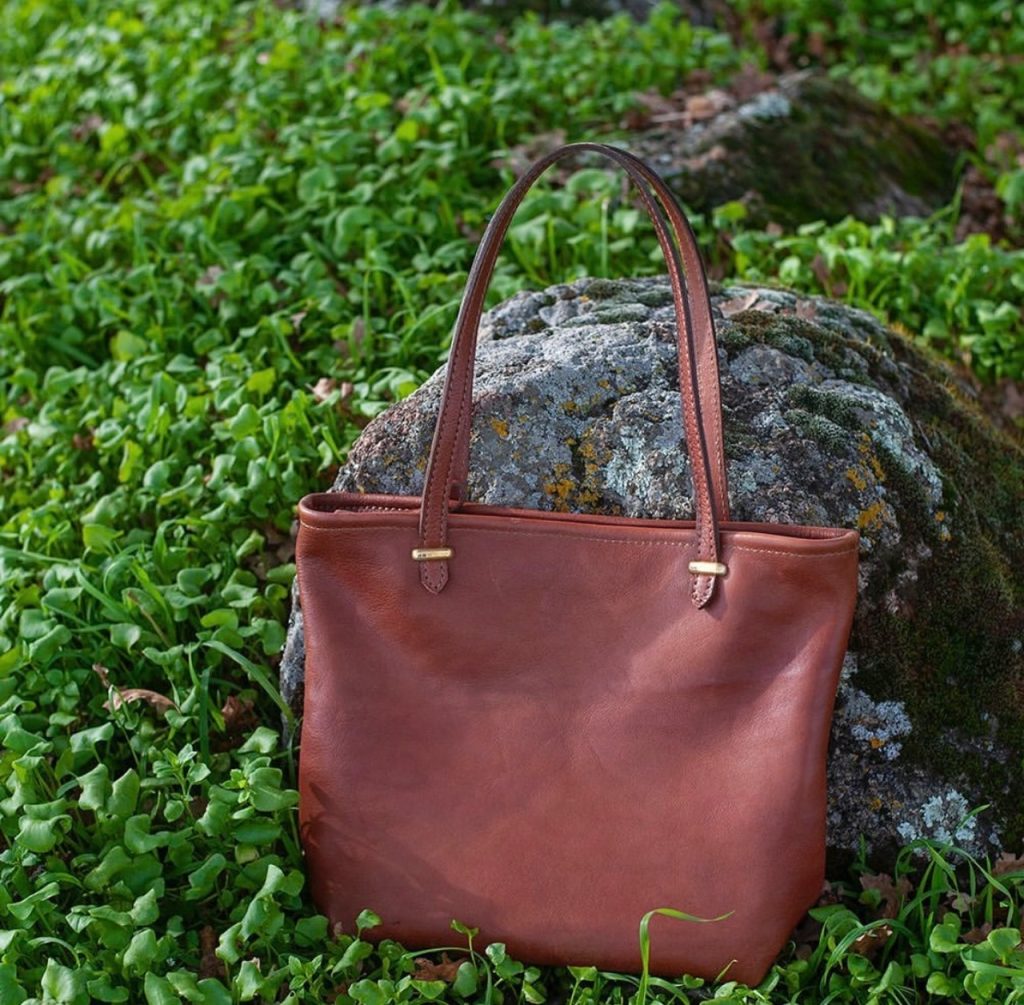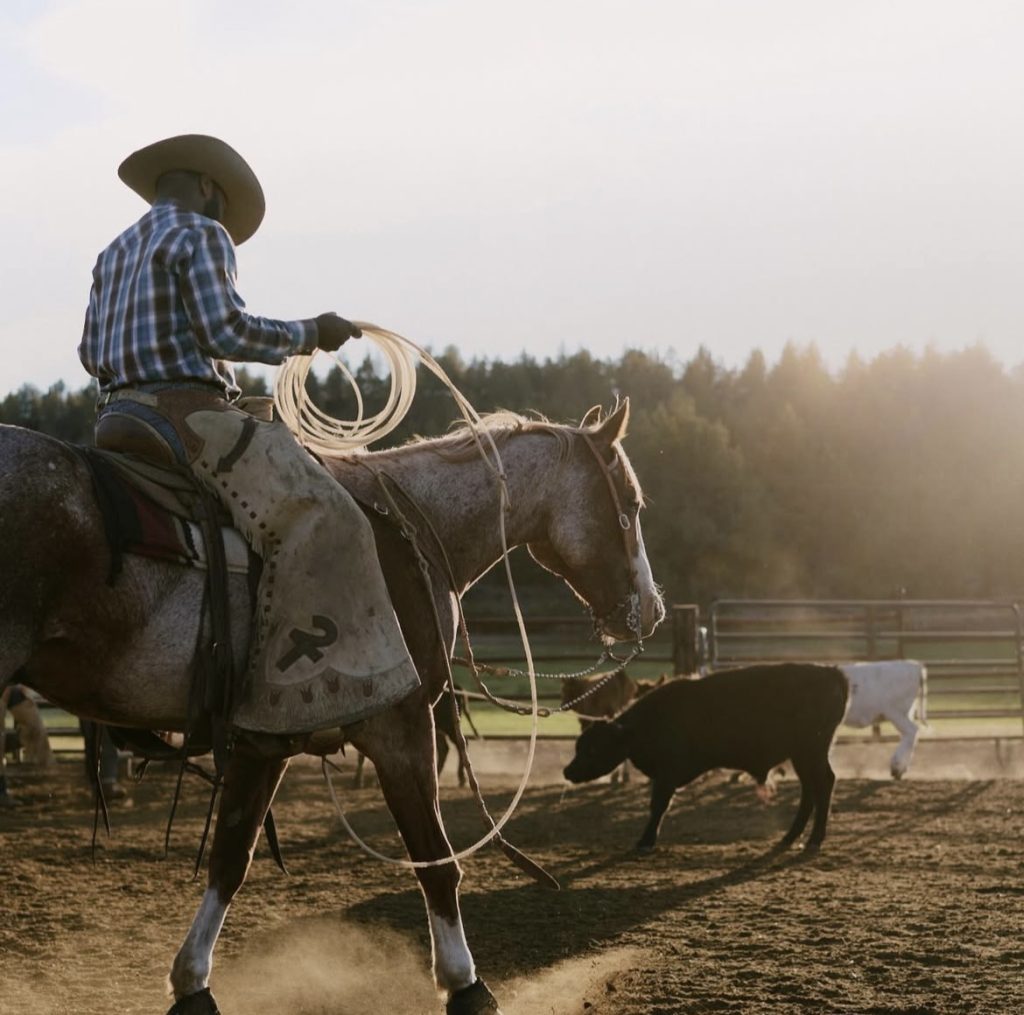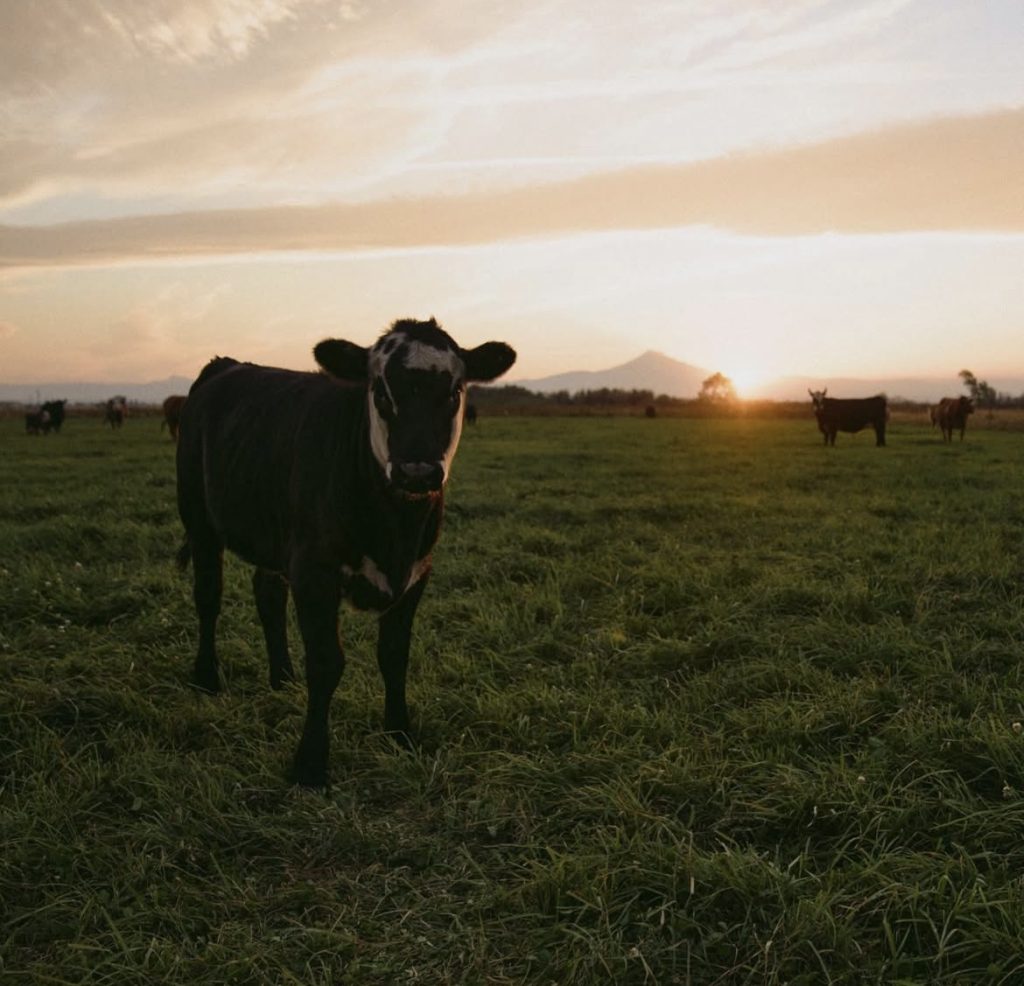Fibers Fund, a catalytic fund focused on environmental equity while supporting small U.S. natural fiber and textile producers and processors, has announced a loan into Range Revolution. Founded by Cate Havstad-Casad, Oregon-based company Range Revolution is creating solutions for regenerative leather supply chains and products.
The loan – which is the Fund’s second after it financed PA Flax in 2024 – will help advance the shared mission of Fibers Fund and Range Revolution to promote soil-based fibers, textiles, and leather as an integral part of holistic regenerative agricultural systems. The loan is structured as a line of credit linked to the value of Range Revolution’s inventory, helping ensure that the financing can grow in line with Range Revolution’s sales.
“Cate and Range Revolution have already brought key visibility to the area of soil-based fibers and leather as a part of regenerative agriculture systems,” says Sarah Kelley, Managing Director of the Fibers Fund. “The Fibers Fund exists to support U.S. natural fiber producers and processors to build their businesses on their own terms, and we’re honored to play a role in helping Range Revolution amplify their message, sales, and impact.”
With this flexible financing, Range Revolution (RR) will invest in critical positions in brand marketing and design, and a fractional CFO role, helping them drive sales and increase operational efficiency. RR’s growth will in turn allow them to expand on their commitment to sourcing cattle hides directly from American ranchers who use regenerative agriculture practices to restore the health of people, planet, and animals.
“We are thrilled to be working with Fibers Fund to capitalize our growth and expand our reach,” explains Cate. “When building a social and ecological start up, finding aligned capital is so critical to building an entity that will preserve its ethos in perpetuity. The Fibers Fund team is thinking outside of conventional boxes to create more regenerative capital models that will support more regenerative business models to scale up. We are energized and capitalized to bring the movement of regeneratively sourced natural fibers to market in a bigger way, creating more impact in the supply chains.”

Range Revolution founder Cate Havstad-Casad.
Source: Range Revolution
Revolutionizing Leather Supply Chains
A rancher and entrepreneur, Cate Havstad-Casad also runs Casad Family Farms – a diversified family operation raising mixed vegetables, hays, grains, and specialty seed crops alongside regeneratively raised cattle and heritage breed hogs – with her husband, Chris. They manage their land organically and they have helped to transition over 200 acres of previously conventionally farmed land into Organic land managed regeneratively with cover crop and prescriptive grazing. Back in 2014, Cate founded Havstad Hat Company, which makes custom western hats, and it was this work that led to the eventual founding of Range Revolution.
In 2020, Cate set out to create a luggage piece for Havstad Hat Company, but instead found a broken leather supply chain. As she looked to source leather that was local and sustainably raised from her ecoregion, Cate discovered that all of the hides from mid-sized cattle processors in Oregon are thrown in the trash, and in fact, that more than 5 million hides are sent to landfill each year in the U.S. Even more, she learned that most leathers that are part of our fashion supply chain can be traced to Brazil and to the deforestation of the rainforests. Part of the issue: mid-size cattle producers and processors didn’t have a market for their hides, which are often treated as a by-product of meat production, so not a primary focus for sellers or the market. With a market that offers a fair price, however, producers could expand and diversify revenue from their herd. This realization started Cate on a journey to rebuild a regenerative, regional leather supply chain and the founding of Range Revolution (RR) in 2021.



Source: Range Revolution
RR was built to address this solution by creating a market for hides while producing high quality, regenerative consumer products. They are on a mission to prove that good design goes hand-in-hand with good stewardship by delivering traceable leather goods, sourced from regenerative American ranches, that transcend trends and appeal across age, gender, and lifestyle. RR works to create a value-added marketplace for the raw goods coming from those ranches. They work exclusively with U.S. ranches that participate in Savory Institute’s Ecological Outcome Verification program, which collects data to demonstrate that ranchers are improving the ecosystems they manage. After sourcing these hides from regenerative farms and/or ranches, they are vegetable tanned at Leather Working Group-approved gold tanneries to ensure minimal environmental impact. The result is finely crafted, high integrity leather products that include purses, notebooks and more.
The broken supply chain that Cate discovered and addressed, however is not unique to leather.
Filling a Capital Gap
Fiber crops, such as flax, cotton, fiber hemp, wool, alpaca, and leather, are an integral part of agricultural systems, yet the sector has received little attention from investors. In 2020, Sustainable Agriculture & Food Systems Funders (SAFSF) launched the Ecological Outcome Verification Report that explored integrated capital opportunities to support revitalization of U.S.-grown fiber, textiles, and leather. This work and the work of the Fibershed Regional Fiber Manufacturing Initiative included extensive interviews with fiber farmers, ranchers, and processors across the country that uncovered some key insights about how capital constraints in this space.
“Through Fibershed’s deep network of fiber producers, we heard many examples of ways that fiber entrepreneurs were struggling to access capital to meet the growing demand for sustainable textiles,” explains Sarah. “In particular, we learned about collateral gaps, gaps in funding for prototyping, and what we called the ‘Commitment Catch-22’: fiber entrepreneurs seek secure contracts in order to scale production, but apparel brands seek guaranteed scale of production before they will commit to contracts. Importantly, the textile industry’s legacy of exploitation and economic injustice compounds these barriers for Black, Indigenous and Latina/o women and non-binary entrepreneurs in the sector.”
Fibers Fund was launched in 2023 to address these challenges. Sarah describes that their model is, “designed to address these gaps by meeting fiber businesses with the right capital at the right time to help them scale their businesses on their own terms, obtain fair contracts, and catalyze additional financing in the future.”
The Fund offers flexible capital to U.S. natural fiber producers and processors in the form of business technical assistance grants, forgivable loans, and patient term loans, combined with wraparound support. Capital is raised from a network of funders and accredited investors, including philanthropies, donor-advised funds, and impact-focused investors. With the capital raised they anticipate providing loans between $50K-$500K, but also aim to customize loan sizes according to the needs of each business.
After being incubated through a partnership between Ecological Outcome Verification and Sustainable Agriculture and Food Systems Funders (SAFSF), the Fund transitioned to independent status at the end of 2024. While Sarah serves as Managing Director, she emphasizes that all the Fund’s work is grounded in and shaped by the guidance of its Advisory Council and Investment Committee members – an intentional two-part governance structure to embed equity into the Fund’s operations. As part of its recent transition to an independent structure, the Fibers Fund selected Broadstreet Impact, an impact financial services company that offers both fund management and fund administration services, to take on the administration of its incoming investments and outgoing loans. This new loan will be serviced through this new partnership. The Fibers Fund also continues to partner withImpact Charitable, which houses a special purpose fund that allows the Fibers Fund to take in and deploy philanthropic capital as a key component of its integrated capital model.
Just Getting Started
Both women’s efforts – through the Fibers Fund and Range Revolution – are only just getting started. Cate continues to build momentum for her system-building efforts. She won the Pitch Session at the 2024 RFSI Forum, and Range Revolution is gaining mainstream recognition, including through a feature in How I Built This with Guy Raz podcast and through celebrity partnerships, such as the one actress Beth Behrs spoke about last week on CBS This Morning.
The Fibers Fund shares similar momentum in its space. With its equity-focused governance structure and approach, the Fund was selected as a 2023 Transformative 25 fund and was also recently featured on ImpactAlpha’s “The Liist” as an innovative debt fund and an example of key 2025 trends for impact funds. They kicked off 2025 with exciting progress on their capital raise that will help them serve the pipeline of companies who need the most patient terms. Says Sarah: “We’re excited to see momentum and awareness of the fiber sector growing from the efforts of Range Revolution and many other inspiring fiber entrepreneurs!”
